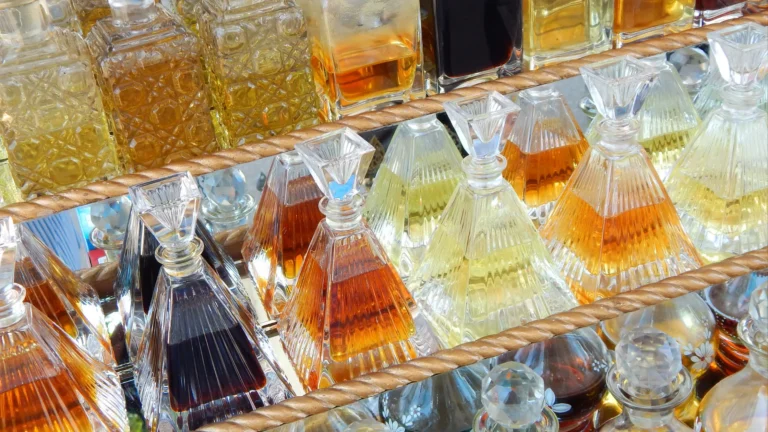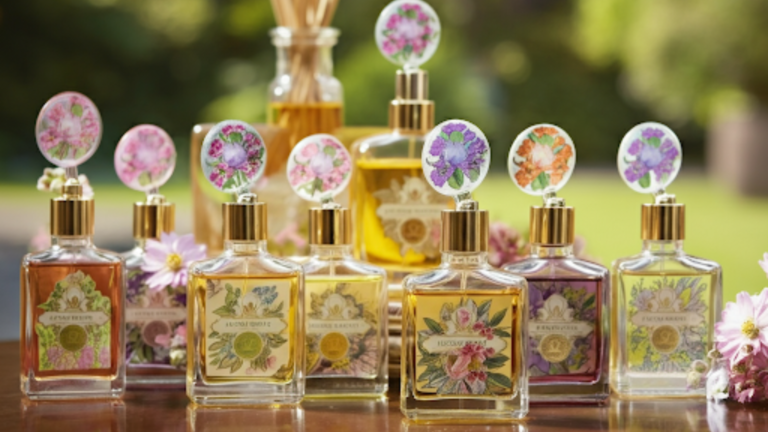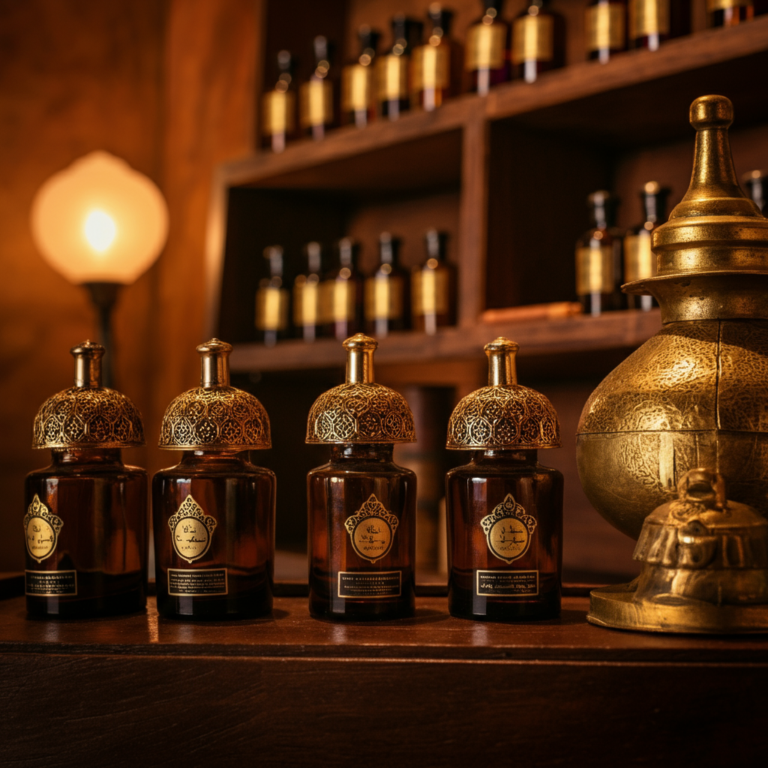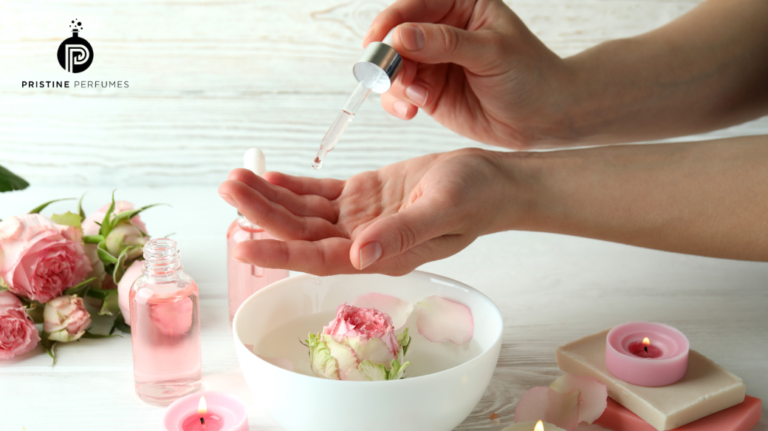
Synthetic perfumes have long been the epitome of luxury and sophistication. Yet, with rising awareness about their potential health and environmental impacts, natural attars are steadily gaining ground as a favored alternative. This article delves into the side effects of synthetic perfumes and the growing preference for natural attars, offering insights into their benefits and the broader market trends.
The Allure of Synthetic Perfumes
Synthetic perfumes, with their wide array of scents and long-lasting formulas, have captivated people’s senses worldwide. Their ability to evoke emotions, memories, and even a sense of identity makes them highly desirable. However, the elements that make these fragrances appealing can pose significant risks.
Composition of Synthetic Perfumes
Synthetic perfumes are crafted from a complex blend of chemicals designed to mimic natural scents. Commonly used chemicals include phthalates, synthetic musks, and various solvents. These ingredients are chosen for their stability, longevity, and ability to produce strong, consistent fragrances.
Chemicals Used
Phthalates, often used as solvents and fixatives, help perfumes adhere to the skin and prolong their scent. However, they have been linked to endocrine disruption and reproductive health issues. Synthetic musks, used for their long-lasting scent, can accumulate in the human body and the environment, raising concerns about their potential toxicity.
Common Ingredients
Other ingredients often found in synthetic perfumes include benzyl acetate, limonene, and linalool. While these substances contribute to the fragrances’ appeal, they can also cause adverse reactions, especially in individuals with sensitive skin or allergies.
Health Risks of Synthetic Perfumes
The health risks of synthetic perfumes vary, ranging from mild skin irritation to more serious systemic effects.
Skin Irritation
One of the most common side effects of synthetic perfumes is skin irritation. Ingredients like alcohol and artificial fragrance compounds can cause redness, itching, and rashes, particularly in people with sensitive skin.
Allergies
Many synthetic fragrances contain allergens that can trigger allergic reactions. Symptoms may include sneezing, watery eyes, and respiratory issues. For some, exposure to these allergens can lead to more severe asthma attacks.
Respiratory Issues
Inhaling the volatile organic compounds (VOCs) emitted by synthetic perfumes can cause respiratory problems. People with asthma or other chronic respiratory conditions may experience worsening symptoms, while others might develop new respiratory issues over time.
Hormonal Disruptions
Certain chemicals in synthetic perfumes, such as phthalates, can interfere with the endocrine system. This disruption can lead to hormonal imbalances, potentially affecting reproductive health and increasing the risk of conditions like breast cancer.
Headaches and Migraines
The strong scents of synthetic perfumes can trigger headaches and migraines in sensitive individuals. This is often due to the high concentration of chemicals like acetone and ethanol, which can irritate the nervous system.
Environmental Impact of Synthetic Perfumes
Beyond personal health risks, synthetic perfumes also pose significant environmental threats. Their production, use, and disposal contribute to various forms of pollution and ecological damage.
Water Pollution
The manufacturing process for synthetic perfumes often involves the discharge of chemical waste into water bodies. This contamination can harm aquatic life and disrupt ecosystems.
Air Pollution
The VOCs emitted by synthetic perfumes contribute to air pollution. These compounds can react with other pollutants to form ground-level ozone, a key component of smog, posing health risks to humans and wildlife.
Non-biodegradable Waste
Packaging for synthetic perfumes often includes non-biodegradable materials like plastic and glass. These materials contribute to the growing problem of waste management and environmental degradation.
Rise of Natural Attars
In response to the growing concerns about synthetic perfumes, natural attars have emerged as a viable and attractive alternative. These fragrances, derived from natural sources, offer a safer and more environmentally friendly option.
What are Natural Attars?
Natural attars are traditional perfumes made from the distillation of natural materials such as flowers, herbs, and spices. Unlike synthetic fragrances, they do not contain artificial chemicals or preservatives.
Composition
The composition of natural attars is simple yet potent. They typically consist of a base oil, like sandalwood, infused with the essence of flowers or other botanical materials. This process results in a pure, concentrated fragrance lasting for hours.
History and Tradition
The use of attars dates back thousands of years, with a rich history rooted in ancient civilizations. They were highly prized in regions like India and the Middle East, where they were used for both personal adornment and religious ceremonies.
Benefits of Natural Attars
Natural attars offer several benefits over synthetic perfumes, making them an increasingly popular choice among consumers.
Skin-friendly
Due to their natural composition, attars are less likely to cause skin irritation or allergic reactions. They are gentle on the skin, making them suitable for individuals with sensitive skin.
Eco-friendly
Natural attars are produced using sustainable methods that have a lower environmental impact. The materials used are biodegradable, and the distillation process generates minimal waste.
Therapeutic Properties
Many natural attars possess therapeutic properties. For example, rose attar is known for its calming effects, while sandalwood attar is used for its grounding and meditative qualities.
Comparing Synthetic Perfumes and Natural Attars
When comparing synthetic perfumes and natural attars, several factors include safety, longevity, and cost.
Safety
Natural attars are generally considered safer than synthetic perfumes due to their lack of harmful chemicals. This makes them a better choice for those concerned about potential health risks.
Longevity
While synthetic perfumes are known for their long-lasting scent, natural attars can also offer impressive longevity. The concentrated nature of attars means a small amount can provide a lasting fragrance.
Cost
Natural attars can be more expensive than synthetic perfumes due to the labor-intensive extraction process and the use of high-quality raw materials. However, many consumers find the investment worthwhile because of its benefits.
Popular Natural Attars
Several natural attars have gained popularity for their unique scents and beneficial properties.
Rose
Rose attar is cherished for its rich, floral aroma and its soothing effects on the mind and body. It is often used in aromatherapy to reduce stress and promote relaxation.
Sandalwood
Sandalwood Attar is renowned for its warm, woody scent and grounding properties. It is commonly used in meditation and spiritual practices to enhance focus and tranquility.
Jasmine
With its sweet and exotic fragrance, Jasmine Attar is celebrated for its uplifting and aphrodisiac qualities. It is often used to boost mood and enhance emotional well-being.
How to Choose the Right Natural Attar
Selecting the right natural attar involves considering several factors to ensure you get a high-quality product.
Quality Indicators
Look for attars that are labeled as pure and natural. High-quality attars are typically more expensive and have a richer, more complex scent profile.
Authenticity
Ensure that the attar you choose is authentic. Reputable sellers will provide information about their attars’ source and production process.
Scent Profiles
Consider the scent profile of the attar and how it aligns with your preferences and needs. Different attars offer various aromas and benefits, so choose one that resonates with you. You can also check out our wide range of natural Attar at Prestine Perfumes.












Pingback: The Mystique of Mitti Attar: Capturing the Essence of Earthy Elegance - Pristineperfumes